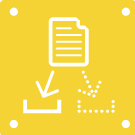
Data Used in New, Unexpected Ways

The faces of more than 120 million people are in searchable photo databases that state officials assembled to prevent driver’s license fraud but that increasingly are used by police to identify suspects, accomplices, and even innocent bystanders in criminal investigations.
DESCRIPTION
When we voluntarily turn our private information over to others, we expect them to treat it with care – and to use it only for the purpose that was initially intended. Increasingly, however, the government and private companies share and use our data in ways we never anticipated. These unapproved uses threaten our ability to control our personal data and can harm us in unexpected ways.
Typically, when we provide a third party with personal information, we do so for a specific purpose. We understand the context and from that we can figure out how our data will be used. That understanding is a critical part of the decision-making process. But when those third parties then take our data and share it with others or use it in a totally different context, it can feel as if we have been tricked or betrayed. We may have never wanted our information used in this new way and perhaps would not have given it up if we had known all the ways it would be used. The unexpected data use takes away our control and can subject us to unwanted scrutiny.
For example, web services companies (like Google, Yahoo, Facebook, and Amazon) and internet service providers (like Comcast, Verizon, and AT&T) collect large amounts of personal data from their customers. Data collection is an important part of their business model. The websites we visit and the content of the emails we send say a lot about our interests and preferences, allowing the companies to market personalized products and services to us.
However, most people don’t expect that this information will be turned over to the government for surveillance purposes. Under the Patriot Act the government is authorized to send National Security Letters to private companies, compelling them to turn over the information they’ve collected about us. Using this information, investigators build a detailed picture of our interests, routine, future plans, and relationships. They can even use it to identify a person who posted anonymous speech on a news or politics website.
Examples of Use
Recommendations
When government agencies consider acquiring and using surveillance systems, communities and their elected officials must both weigh the benefits against the costs to civil liberties and carefully craft policies and procedures that help to limit the negative effects that surveillance will have on fundamental rights. For a useful list of considerations, please visit the recommendations page.
